If you're a fan of 'Star Trek: Voyager' (1995), you're likely drawn to its unique blend of deep-space exploration, compelling character arcs, and thought-provoking sci-fi themes. This article is for you! We've curated a list of 10 movies and TV shows that capture the same spirit of adventure, camaraderie, and interstellar intrigue. Whether you're craving more epic space sagas or character-driven sci-fi dramas, these picks will keep you engaged long after Voyager's final journey.
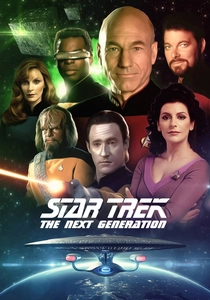
Star Trek: The Next Generation (1987)
Description: As part of the same franchise, 'Star Trek: The Next Generation' shares many similarities with 'Star Trek: Voyager', including the exploration of space, encounters with alien species, and moral dilemmas. Both series emphasize teamwork, diplomacy, and the pursuit of knowledge, core tenets of the Star Trek universe. The visual aesthetics and storytelling style are also consistent, with a focus on episodic adventures that sometimes tie into larger arcs.
Fact: Patrick Stewart, who played Captain Jean-Luc Picard, was initially hesitant to take the role but was convinced by his agent. The show introduced the iconic 'Borg' species, which later became central to 'Voyager's' storyline. 'The Next Generation' was the first Star Trek series to win a Peabody Award.
 Watch Now
Watch Now 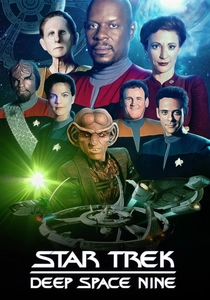
Star Trek: Deep Space Nine (1993)
Description: 'Deep Space Nine' shares the Star Trek universe's themes of exploration and diplomacy but with a darker, more serialized tone, similar to 'Voyager's' later seasons. Both shows delve into complex character development and long-term story arcs, such as the Dominion War in 'DS9' and the journey home in 'Voyager'. The shows also explore the challenges of leadership and the moral ambiguities of war and survival.
Fact: 'Deep Space Nine' was the first Star Trek series to feature a space station as its primary setting rather than a starship. Avery Brooks, who played Captain Sisko, was the first African American to lead a Star Trek series. The show introduced the concept of the 'wormhole aliens', a non-corporeal species with a unique perspective on time.
 Watch Now
Watch Now 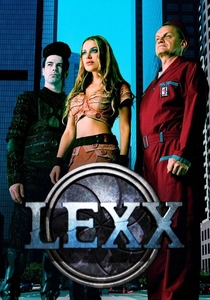
Lexx (1997)
Description: 'Lexx' shares 'Voyager's' premise of a crew traveling through space, but with a darker, more surreal and comedic tone. Both shows explore strange alien worlds and moral ambiguities, though 'Lexx' is more overtly satirical and adult-oriented. The show's unique visual style and unconventional storytelling make it a cult favorite, much like 'Voyager's' more experimental episodes.
Fact: The show originated as a series of TV movies in Germany before becoming a full series. 'Lexx' was known for its bizarre and often risqué content, earning it a niche but dedicated fanbase. The show's ship, the 'Lexx', is a living biomechanical organism, one of the most unique starships in sci-fi.
 Watch Now
Watch Now 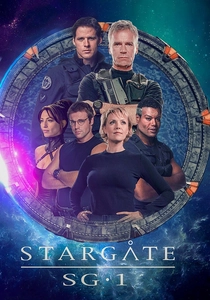
Stargate SG-1 (1997)
Description: 'Stargate SG-1' shares 'Voyager's' episodic adventure format, blending science fiction with exploration and diplomacy. Both shows feature a team of diverse characters working together to overcome challenges, often with a mix of action and humor. The shows also explore ancient alien civilizations and their impact on humanity.
Fact: The show is a spin-off of the 1994 film 'Stargate', with Richard Dean Anderson reprising his role as Jack O'Neill. 'SG-1' ran for 10 seasons, making it one of the longest-running North American sci-fi series. The show introduced the 'Asgard', a benevolent alien race inspired by Norse mythology.
 Watch Now
Watch Now 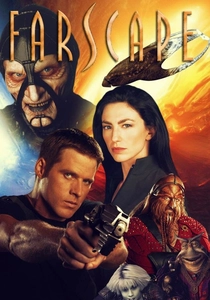
Farscape (1999)
Description: 'Farscape' shares 'Voyager's' premise of being lost in space, with a crew of diverse aliens and humans trying to find their way home. Both shows emphasize character growth and interpersonal relationships, with a mix of drama and humor. 'Farscape' is known for its imaginative alien designs and unconventional storytelling, much like 'Voyager's' more experimental episodes.
Fact: The show was created by Rockne S. O'Bannon, who also worked on 'Alien Nation' and 'SeaQuest DSV'. The puppetry for the character 'Rygel' was performed by Jonathan Hardy, who also provided the voice. 'Farscape' was canceled after four seasons but concluded with a miniseries, 'The Peacekeeper Wars', due to fan campaigns.
 Watch Now
Watch Now 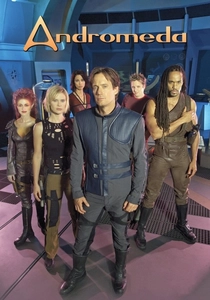
Andromeda (2000)
Description: 'Andromeda' shares 'Voyager's' themes of exploration and rebuilding civilization, with a crew striving to restore hope in a fractured universe. Both shows feature strong leadership and moral dilemmas, though 'Andromeda' has a more action-oriented approach. The show's optimistic tone and episodic structure are reminiscent of 'Voyager's' earlier seasons.
Fact: The show was created by Gene Roddenberry, the creator of 'Star Trek', based on his unused concepts. Kevin Sorbo, who played Captain Dylan Hunt, was known for his role in 'Hercules: The Legendary Journeys'. 'Andromeda' was originally conceived as a more philosophical series but shifted to a more action-heavy format over time.
 Watch Now
Watch Now 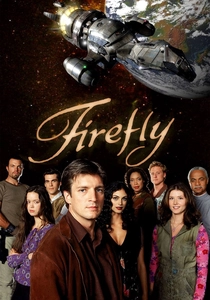
Firefly (2002)
Description: 'Firefly' and 'Voyager' both focus on a crew navigating the challenges of space, though 'Firefly' has a more Western-inspired, gritty tone. Both shows explore themes of family, loyalty, and survival, with a strong emphasis on character dynamics. 'Firefly's' blend of humor and drama, along with its unique setting, makes it a spiritual cousin to 'Voyager'.
Fact: The show was created by Joss Whedon, who also created 'Buffy the Vampire Slayer' and 'Angel'. 'Firefly' was canceled after only 14 episodes but gained a cult following, leading to the 2005 film 'Serenity'. The show's dialogue includes a mix of English and Mandarin, reflecting its fusion of Western and Eastern cultures.
 Watch Now
Watch Now 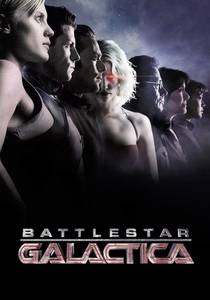
Battlestar Galactica (2004)
Description: Like 'Voyager', 'Battlestar Galactica' follows a fleet of ships on a long journey home, facing constant threats and moral dilemmas. Both shows explore themes of survival, leadership, and the human condition under extreme circumstances. The gritty, realistic tone of 'Battlestar Galactica' contrasts with 'Voyager's' optimism but shares a focus on character-driven storytelling and complex interpersonal dynamics.
Fact: The show was inspired by the 1978 series of the same name but took a more serious and mature approach. Edward James Olmos, who played Admiral Adama, insisted on using real military jargon to add authenticity. The series finale was controversial but remains one of the most talked-about endings in sci-fi TV history.
 Watch Now
Watch Now 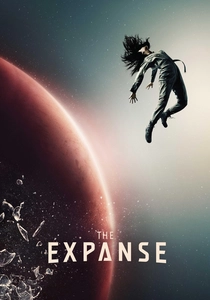
The Expanse (2015)
Description: 'The Expanse' shares 'Voyager's' emphasis on political intrigue, scientific accuracy, and diverse crew dynamics. Both shows explore the challenges of space travel and the tensions between different factions. 'The Expanse' is more grounded in hard science fiction but shares 'Voyager's' commitment to world-building and character development.
Fact: The show is based on a series of novels by James S.A. Corey, a pen name for authors Daniel Abraham and Ty Franck. 'The Expanse' was initially canceled by Syfy but was revived by Amazon due to fan demand. The show's realistic depiction of zero-gravity environments has been praised by scientists.
 Watch Now
Watch Now 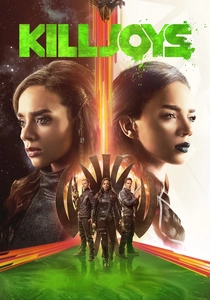
Killjoys (2015)
Description: 'Killjoys' shares 'Voyager's' focus on a tight-knit crew navigating a dangerous universe, with a mix of action, humor, and character-driven stories. Both shows explore themes of loyalty and survival, though 'Killjoys' has a more rebellious, anti-authority tone. The show's episodic missions and overarching plotlines are similar to 'Voyager's' structure.
Fact: The show was created by Michelle Lovretta, who also created 'Lost Girl'. 'Killjoys' was filmed in Toronto, with many of the same production teams as 'Orphan Black'. The show's title refers to the bounty hunters' license to 'kill' and their reputation as 'joys' to their clients.
 Watch Now
Watch Now 








